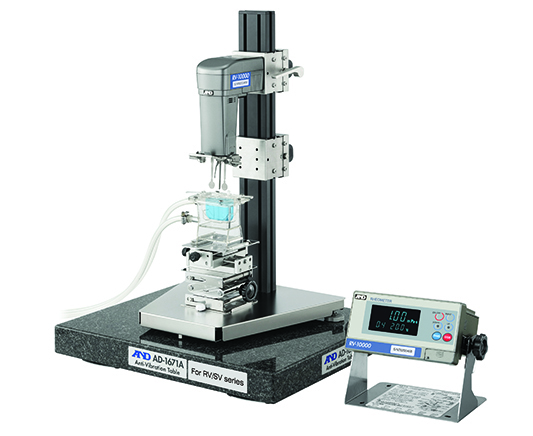
Rheometers are devices that measure the flow properties of liquids. They are commonly used in manufacturing to ensure quality control of products like paints, adhesives, and foodstuffs.
Rheometers work by measuring the resistance of a liquid to flow. This information can be used to calculate things like viscosity, which is a measure of a liquid’s thickness. Viscosity is important to manufacturers because it affects how easily a product can be applied or used. For example, if a paint is too thick, it will be difficult to spread evenly on a surface. On the other hand, if a paint is too thin, it will run and drip.
Quality control rheometers help manufacturers to produce products with the correct viscosity for their intended use. This, in turn, helps to ensure that products meet customer expectations and are fit for purpose.
There are a number of different types of rheometers available on the market, each designed for specific applications. Some rheometers can measure the flow properties of both liquids and solids, while others are only suitable for measuring liquids. There are also portable rheometers that can be used out on the factory floor, as well as more sophisticated laboratory-grade devices.
No matter what type of rheometer you need, it’s important to choose a reputable supplier who can offer accurate and reliable measurements. At A&D weighing, we have over 50 years of experience in the design and manufacture of high-quality rheometers. We offer a wide range of products to suit different manufacturing applications, and our team is always on hand to offer expert advice and support.
If you’re looking for a quality control rheometer for your manufacturing business, contact Presto today. We’ll be happy to help you find the perfect device for your needs.
A&D Weighing is a world leading supplier of quality control rheometers. Our products are used ain manufacturing to ensure quality control of products like paints, adhesives, and foodstuffs. We offer a wide range of products to suit different applications, and our team is always on hand to offer expert advice and support. Contact us today to find out more.
The untold secrets of rheometers: what they are and what they do
Rheometers are devices that are used to measure the flow and viscosity of fluids. They are essential for many industries, including the food and beverage, cosmetics, and pharmaceutical industries.
There are two main types of rheometers: rotational and oscillatory. Rotational rheometers measure the fluid’s resistance to flow under shear stress, while oscillatory rheometers measure the fluid’s viscoelasticity, or how it deforms under applied stress.
Rheometers are used to characterize a wide variety of fluids, from water and other liquids to complex fluids such as blood and emulsions. They can be used to measure the viscosity of a fluid at a given temperature, or to determine the best temperature for a given viscosity.
Rheometers can also be used to study how fluids flow in different situations, such as under gravity or in microgravity. This information is important for many industrial and scientific applications.
There are many different types of rheometers, each with its own advantages and disadvantages. The type of rheometer that is best suited for a particular application depends on the properties of the fluid being measured and the desired accuracy of the measurement.
Rheometers are an essential tool for many industries, and their use is only limited by the imagination of the user. With the ever-increasing demand for new and improved products, the need for accurate rheological data will only continue to grow.
If you have any questions about rheometers or their applications, please don’t hesitate to contact us. We would be more than happy to help you choose the right rheometer for your needs.
